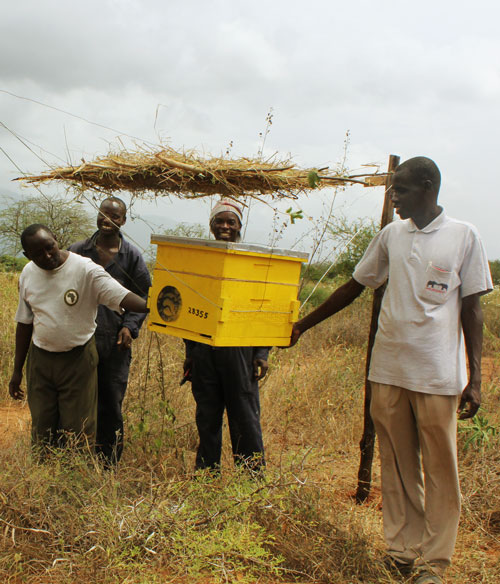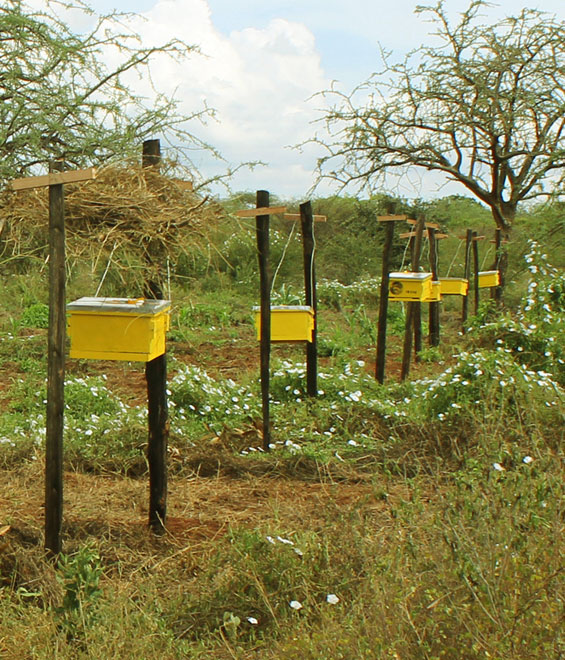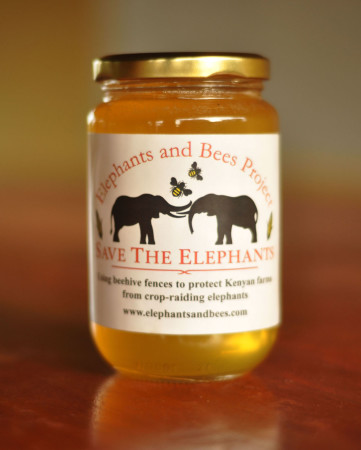Bees and Elephants
Being a farmer is hard work — but being a farmer in places like Kenya, Botswana, and Sri Lanka has a unique challenge that other areas of the world don’t: elephants!
Wild elephants, whose natural behavior is to roam, have been known to march right through fields, damaging and destroying crops. When the human farmers try to intervene, things can turn ugly, and both human and elephant injuries and even deaths can occur. Sadly, like too many animals, elephants face many dangers at the hands of humans. It’s a shame, because these creatures are intelligent, sensitive and have complex emotional and social connections, forming strong bonds with one another,and with different animals, too. So a solution was needed that would both keep the farmers’ fields safe, but make sure the elephants were in no way harmed. This solution was not only brilliantly simple, but also had the added bonus of helping out another species in crisis: bees.
 |
| A Farmer in his raided crop |
Elephants usually raid fields at night and to ward them off, people have fired guns, thrown rocks and launched firecrackers to scare them off. Just like with humans, an injury or death in an elephant’s family unit puts major emotional stress on the herd.
The devastation to fields is no small issue, either. These small farmers rely on their crops to survive, and a damaged field can mean a serious loss of income and food.
There seemed to be no simple solution, until zoologist Dr. Lucy King noticed something: Elephants really don’t like bees, and will avoid them at all costs. If they hear buzzing, they’ll leave an area immediately, signalling to others that bees are about. This is because the bees’ stings are especially painful to the elephants’ trunks, and to avoid this pain, the elephants prefer to just stay away. And thus, bee fences were born!

“Beefencing”, as it’s known, is the use of hanging rows of beehives, each connected by a length of wire. When a nosy elephant approaches, it will knock into the wire, setting the hives swinging and disturbing the bees. And when the elephants hear that buzzing, they’ll turn around and leave. The crops are safe, the humans are safe, and the elephants are safe. The bees are safe, too.

Dr. King has been working with various conservation organizations and communities in Africa and Sri Lanka, building these beefences around local farms. She hopes that this will be the first of many steps to create sustainable solutions where humans and animals can coexist peacefully.
The bees also help pollinate fields and maintain the biodiversity needed to support an ecosystem, so the farmers get a helping hand, too. And as an added bonus, the farmers get to keep the honey and beeswax produced by their hives, which they can use or sell.

This “elephant-friendly honey” is available in local shops near the areas where the farmers live and work. So unless you’re planning a visit to Nairobi, you won’t be able to get any. But it’s quite popular where it’s sold!

What an amazing thoughtful solution
ReplyDeleteWhat a wonderful solution where everyone wins...the elephants, the bees and the people too! Just proves that one doesn't always have to be foresaken for the other!
ReplyDeleteAwesome idea! thanks for sharing that!
ReplyDeleteDon't you love it when there is such a simple solution that is also beneficial.
ReplyDeleteUp there for thinking, 99.
ReplyDelete